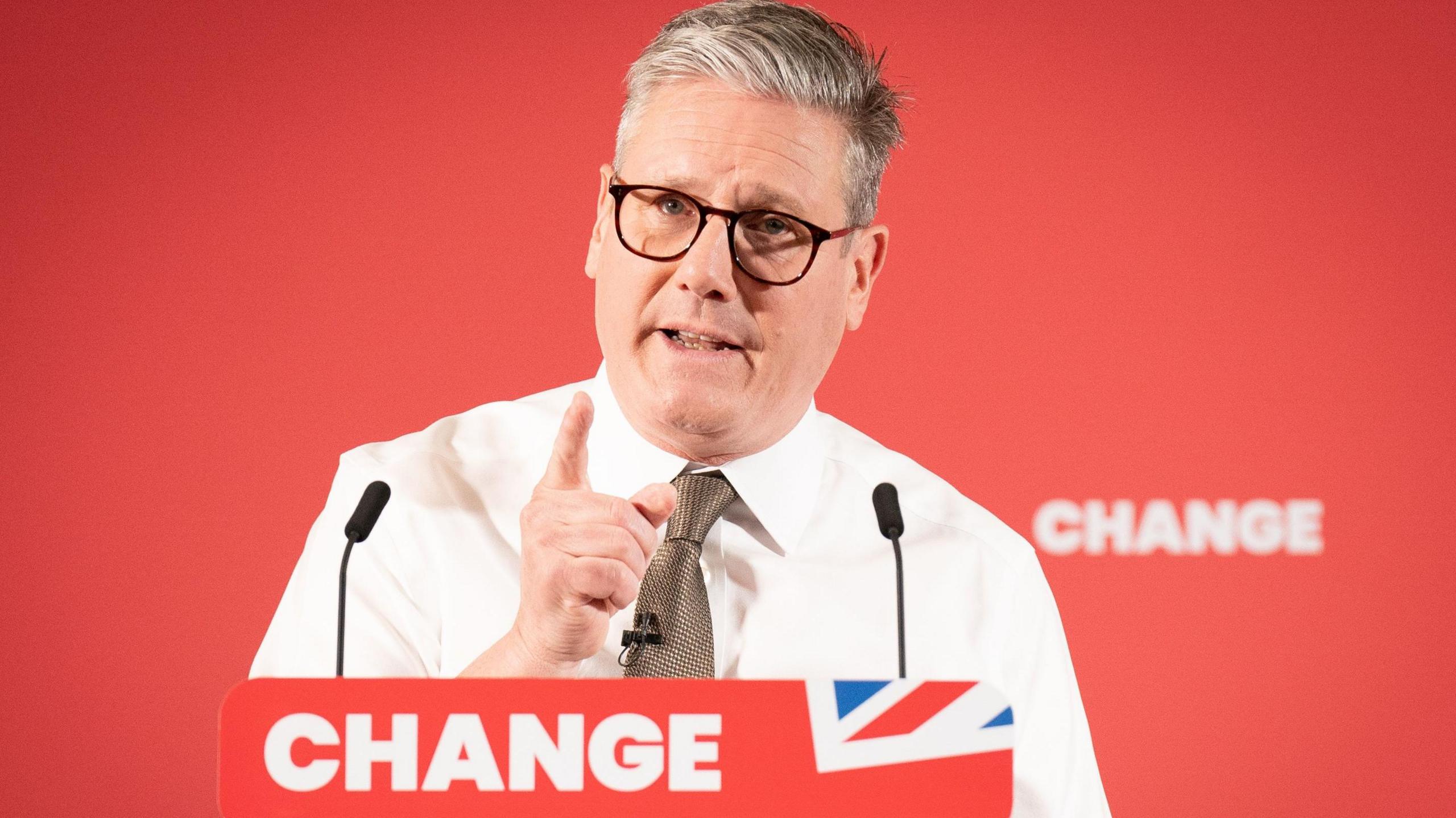Unite union refuses to endorse Labour manifesto

- Published
Unite, Labour's biggest trade union backer, has refused to endorse the party's general election manifesto, saying it does not go far enough on protecting workers' rights and jobs in the oil and gas industry.
Union leaders were at a meeting on Friday to finalise the party's 2024 election platform ahead of its launch next week.
The BBC understands that at the meeting Unite announced they would not endorse Labour's plans.
There is now a question mark over whether Unite will fund the party at the general election. In 2019, Unite gave £3m to Labour's campaign.

Unite General Secretary Sharon Graham had previously warned there were "no blank cheques" for Labour.
Ahead of the meeting, Unite told the BBC it wanted to see the end of zero hours contracts - and a complete ban on the practice of "hire and fire" practices where workers are fired and taken back on with worse pay and conditions.
"We go into the meeting with open hearts but girded loins," one union leader told the BBC before entering the meeting.
The public service union Unison wanted to ensure commitments to improved pay and wage bargaining are in the document.
When asked about union unease before the meeting, Sir Keir said: “We’ve got a very good package for working people. This is the biggest levelling up of rights at work for a very, very long time.
“This is about, for me, the respect and dignity that I think everyone should have at work. But it’s also crucial to our plan for growth."
Labour's main themes for government have been established for months, but final details will be published next week in a full manifesto launch.
A manifesto outlines what a party plans to do if it forms the next government.
But party rules, specifically clause five, require the final manifesto to be signed off at a special meeting of the shadow cabinet, the parliamentary committee of Labour MPs, the Scottish and Welsh Labour leaders, the chair and vice-chairs of the National Policy Forum, the national executive committee, and representatives of affiliated trade unions.
Clause five does not require all stakeholders to agree to the manifesto for it to be valid.
The BBC understands there was no formal vote, and party sources say the document was approved by a round of applause.
Ahead of the meeting, Sir Keir confirmed to the BBC that Labour's manifesto will include a commitment to recognise a Palestinian state as "part of the process" to a two-state solution.
The Labour leader said it is important there is a "viable Palestinian state alongside a safe and secure Israel".
Labour sources have said the document will be "radical" on planning reforms and housebuilding.
It also includes plans to recruit more teachers and police officers and to cut net migration.
After snap elections in 2017 and 2019, this year's manifesto is the first time in a decade the Labour party enters an election having completed its complex policy sign-off process.
While many party figures have been involved in shaping parts of the manifesto, the whole document is being closely guarded to reduce the chance of leaks.